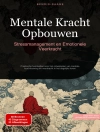This book analyzes key findings and developments of psychology for sustainable development. The starting point is a discussion of the established literature of environmental psychology in regards to which factors influence environment-related behavior. Afterwards, the author discusses strategies and interventions that can promote sustainable behavior. It is very important that in order to increase the effectiveness of environmental psychological interventions, these must be first contextualized socially. Furthermore, interventions that aim to bring about a socio-ecological transformation should also focus on the goal of subjective well-being. Overall, the findings of environmental psychology are brought together with theories from positive psychology and the approach of psychological resources from positive psychology and the approach of psychological resources from health psychology to answer the question: How can the socio-ecological transformation of a consumer society be supported by an inner transformation of human beings. An answer to this question is provided by the promotion of six psychological resources for sustainable lifestyles: mindfulness, capacity for pleasure, self-acceptance, self-efficacy, construction of meaning and solidarity can both promote individual well-being and increase motivation for sustainable behavior.
Mục lục
Socio-ecological starting point and problem situation.- Psychology for sustainable development.- Psychological resources for sustainable lifestyles.- Settings for the promotion of psychological resources for sustainable lifestyles.- The desirable, the probable and the possible.
Giới thiệu về tác giả
Marcel Hunecke is Professor of General Psychology, Organisational and Environmental Psychology in the Department of Applied Social Sciences at Dortmund University of Applied Sciences and Arts.












